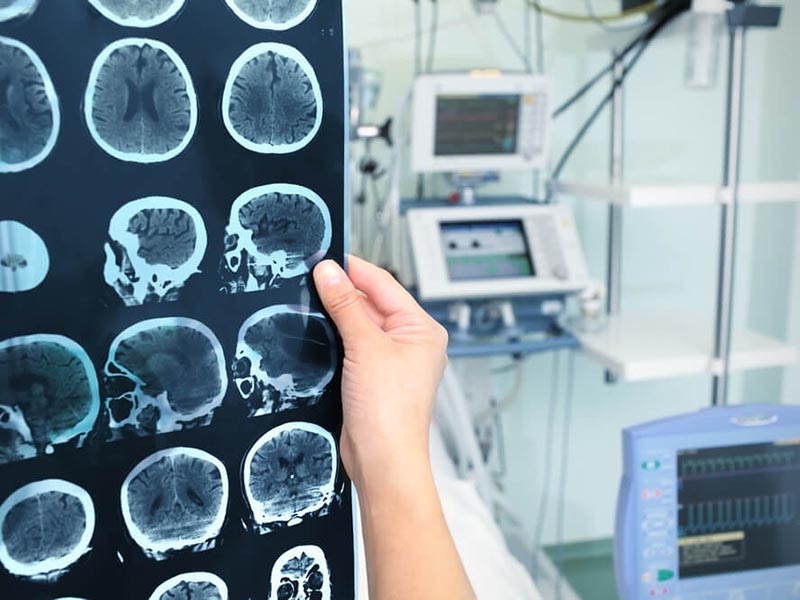Clinic Consultation in Brampton / ON, is a leading healthcare provider renowned for its specialized Electroencephalogram (EEG) exam services. This diagnostic procedure is instrumental in measuring the electrical activity of the brain to help diagnose and monitor conditions such as epilepsy, sleep disorders, and brain injuries. Our facility is equipped with state-of-the-art EEG technology, and our team of highly trained neurologists and technicians are skilled in conducting these tests with precision and care. We are committed to ensuring patient comfort throughout the procedure, providing a calm and supportive environment. Following the EEG exam, our neurologists offer comprehensive consultations to discuss the results and the next steps in treatment or management, if necessary. Clinic Consultation prides itself on delivering exceptional patient care and accurate diagnostic services, making it the go-to destination for individuals in Brampton / ON, seeking expert EEG exam services.
Electroencephalogram in Brampton / ON

Electroencephalogram in Brampton / ON
An Electroencephalogram (EEG) is a non-invasive procedure used to measure electrical activity in the brain. The test records brain wave patterns, which helps healthcare providers diagnose and monitor various neurological conditions, including epilepsy, sleep disorders, and brain injuries. EEGs are essential for understanding how the brain functions and identifying abnormal patterns that may indicate underlying issues.
During the procedure, small electrodes are placed on the scalp, which detect the electrical impulses generated by brain cells. These impulses are recorded and displayed as wavy lines on a computer screen, allowing doctors to analyze the brain's electrical activity.
Types of EEG
Standard EEG
A Standard EEG is the most common form of this procedure. It is typically performed in a medical office or clinic and involves placing electrodes on the scalp to measure brain activity while the patient is awake or resting. The test usually lasts between 30 to 60 minutes. Standard EEGs are often used to detect abnormalities in brain function that may be associated with conditions such as seizures, head injuries, or encephalitis.
The procedure is painless and requires no sedation. The patient is asked to remain still, and sometimes they are exposed to specific stimuli, such as flashing lights or deep breathing, to see how the brain responds. This form of EEG provides a snapshot of brain activity during a relatively short period.
Ambulatory EEG
An Ambulatory EEG is used to monitor brain activity over an extended period, typically 24 to 72 hours, while the patient goes about their daily activities. This type of EEG is particularly useful for patients who experience infrequent seizures or episodes, as it allows for continuous monitoring outside of a hospital setting.
During an ambulatory EEG, electrodes are attached to the scalp, and the patient wears a small recording device that captures brain wave activity throughout the day and night. This extended monitoring provides more comprehensive data, helping healthcare providers better understand seizure patterns or other irregular brain activity. The test is commonly used for patients with epilepsy or other chronic neurological conditions that require long-term observation.
Advantages of the EEG Procedure
EEGs offer numerous benefits:
- Non-invasive: The procedure does not involve surgery, incisions, or any significant discomfort, making it a safe and simple diagnostic tool.
- Real-time brain activity monitoring: EEGs provide real-time data on how the brain functions, helping doctors quickly identify abnormalities in brain waves that could indicate seizures, brain injuries, or other issues.
- Versatile diagnostic tool: EEGs are used to diagnose a variety of conditions, from epilepsy and sleep disorders to brain tumors and head trauma.
The procedure itself typically lasts 30 minutes to a few hours, depending on the type of EEG, and results can often be available within a few days.
Pre- and Post-exam Care
Pre-exam care: Before the EEG, patients should wash their hair thoroughly but avoid using any hair products such as gels, oils, or sprays. This ensures that the electrodes adhere properly to the scalp. In some cases, the patient may be asked to stay awake the night before the procedure if the doctor wants to monitor brain activity while the patient is sleep-deprived. Patients should inform their healthcare provider about any medications they are taking, as certain medications can affect brain activity.
Post-exam care: After the test, patients can resume normal activities immediately. There are no side effects from the EEG itself, although patients who underwent a sleep-deprived EEG may feel tired and should plan for rest afterward. If any abnormalities are detected, the healthcare provider will discuss the findings and recommend further tests or treatment options.
Frequently Asked Questions (FAQ)
1. How long does an EEG take?
The duration of the EEG depends on the type of test. A standard EEG typically takes 30 to 60 minutes, while an ambulatory EEG may require 24 to 72 hours of continuous monitoring.
2. Is the EEG procedure painful?
No, EEGs are painless. The electrodes simply sit on the surface of the scalp and do not cause any discomfort.
3. What happens if abnormal brain activity is detected?
If abnormal brain wave patterns are found, your healthcare provider may recommend further tests or treatments, such as medication for seizures or additional imaging studies to diagnose the underlying cause.
EEG Services at Clinic Consultation
At Clinic Consultation, we offer comprehensive EEG services to help diagnose and manage neurological conditions. Whether you need a standard or ambulatory EEG, our skilled healthcare providers are here to guide you through the process and ensure you receive the highest quality care.
Book an appointment today to schedule your EEG at Clinic Consultation and get the answers you need about your brain health.
Click the button below to schedule your appointment online.